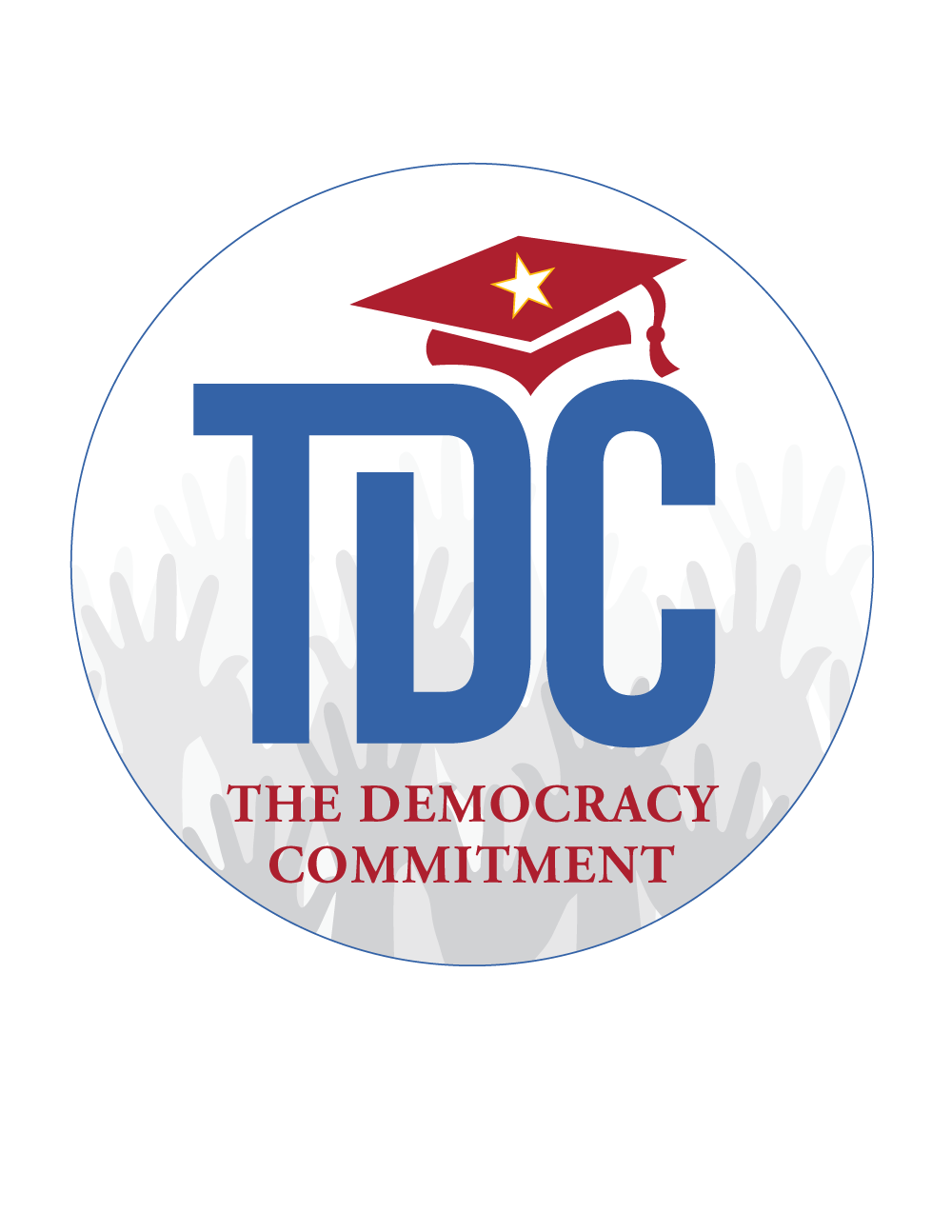Membership
Why Become a Member of The Democracy Commitment
Benefits to Membership
By becoming a member of TDC, members institutions receive access to TDC’s services: Awards and Recognition, Civic Network, Programs, and Resources & Publications. Additionally, becoming a member of TDC entitles institutions with:
Members Receive: Exclusive Campus Benefits and Discounts | Exclusive Access to Relevant Resources | Campus Visibility and Recognition | Campus-wide Professional Development Opportunities | Networking Opportunities | Opportunities for National Partnerships
Campus Benefits
Member institutions are automatically eligible for participation in programs including national initiatives, projects, and grant-funded opportunities. Administrators, faculty, staff, and students alike can take advantage of member rates when registering for TDC and TDC-sponsored summits, workshops, and meetings. Additionally, everyone within your campus community can take advantage of selected publication discounts and exclusive permission to copy and distribute selected publications at no additional charge for faculty development and other internal campus activities.
NETWORKING OPPORTUNITIES
Through workshops, regional summits, and national meetings, our members have professional opportunities to develop skills in civic learning and democratic engagement and to learn from others across the country exchanging ideas on best practices to advance this work. From examples of local organizing endeavors to training in deliberative dialogues, TDC provides our members the platform to work collaboratively and across institutional boundaries to build seamless curricular, co-curricular, and extracurricular opportunities for our community college students and their success. TDC members have the opportunity to develop regional and national programs that build civic skills among students, especially focusing on projects that support students in doing public work which has an impact on retention, completion, and ultimate student success.
Access to Resources
TDC has amassed a national clearinghouse of program designs, curricula, and project development strategies for community colleges. Member institutions have access to these materials and ideas which extend beyond volunteerism embracing civic work broadly to include the democratic practice. TDC membership provides ongoing access to resources in areas such as Electoral and Political Engagement; Civic and Democratic Education and Engagement; Community Engagement; Global Citizenship; and Professional Training and Development. Members have exclusive permission to copy and distribute resources at no additional charge for faculty development and other internal campus activities.
PARTNERSHIPS
TDC membership positions your institution to join with other campuses and organizations in AASCU’s sponsored initiatives such as Engage the Election powered by icitizen, ADP/TDC Economic Inequality Initiative. Also, joint other grant-funded projects with organizations such as AAC&U such Bridging Cultures to Form a Nation and Citizenship Under Siege both funded by the National Endowment for the Humanities (NEH).
Professional Development
TDC summits, workshops and meetings, programs, publications, and projects allow your institution to engage with the educational community at large. Individuals on your campus can use these forums to share your institution’s experiences and accomplishments with others and learn best practices from our network of democracy’s campuses. Additionally, TDC members can partner with other TDC campuses as well as in AASCU’s national initiatives focused on civic and democratic learning and engagement.
CAMPUS VISIBILITY
Partnerships formed between TDC and national organizations give our members recognition and access to a myriad of opportunities for exposure. Because TDC is represented in our nation’s capital, our members are often spotlighted at national events along with our annual and regional meetings. TDC and TDC-sponsored summits, workshops, and meetings provide numerous opportunities to share your institution’s best practices, innovations, accomplishments, and challenges with the higher education community at large. Also, TDC members gain valuable exposure for their participation in TDC programs through TDC’s print and online publications and on TDC’s website. Additionally, TDC members can have institutional announcements, events, resources, and essays posted on our website and in our online member newsletter What’s New with TDC available to the entire educational community.
Campus Commitment
Firstly, to ensure communication between TDC headquarters and each college, all member institutions are asked to designate a Campus Coordinator. TDC Campus Coordinator is a very important commitment we ask of each member institution. The Campus Coordinator is defined as: a faculty member, administrator, or staff person who believes in the value of a civic education and is committed to the success of The Democracy Commitment on your campus.
Additionally, the Commitment includes:
- $1, 000 annual membership dues per college beginning each fiscal year on July 1st to aid in the continuation of TDC’s staff and further the dedication to civic learning and democratic engagement in America’s community colleges.
- A public commitment to the central role of civic education.
- Intentional support for both curricular and extracurricular programs that build civic skills among students, especially focusing on projects that support students in doing public work.
- Faculty and staff development in civic engagement through civic-infused programs and curricula
- Partnerships with local civic, non-profit, and/or governmental agencies whose primary work is the social and economic development of local communities.
- Participation in the annual meeting that brings together students, faculty, staff, administrators, and partners. Development of joint regional and national programs with partner universities, and with national higher education associations.
How to Join
